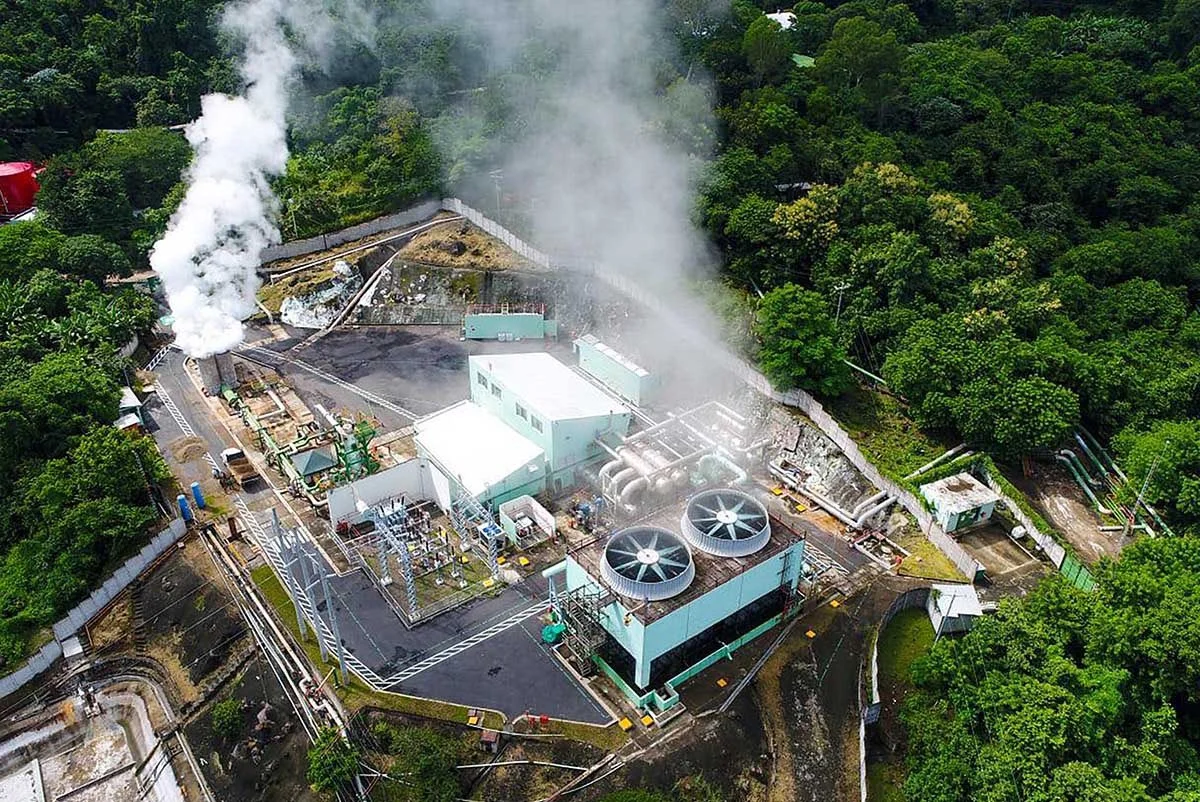
Volcano-powered bitcoin: One sovereign nation's cryptocurrency plans
Mining cryptocurrency already consumes more energy than some sovereign nations. Now El Salvador, itself a sovereign nation, plans to recognize it as a parallel legal currency, powered by the country’s abundant geothermal energy.
It’s remarkable how much the fortunes of bitcoin rise and fall based on what one influential figure or another might put out on Twitter, and this time, it’s Salvadorean President Nayib Bukele’s turn to move the markets.
The cryptocurrency’s profile already got a boost last month when El Salvador announced it would recognize it as legal tender alongside the U.S. dollar, making it the first sovereign country in the world to work any digital-only currency into its financial system.
The pioneering fiscal strategy doesn’t end there: Bukele also announced that the crypto mining for the new currency will be powered by volcanoes.
Bitcoin is earned by miners as a kind of reward for using powerful computers to solve complex math problems, and those computers use an enormous amount of power. Just how much power varies as bitcoin’s value rises and falls. As of June 30th, Cambridge University estimates bitcoin’s energy use at around 66.04 TWh per year, down considerably from last month but still slightly more than Venezuela and not far behind Austria.
That’s an enormous amount of power, with an accompanying impact on emissions depending on the source of the power. In a given country with a largely fossil-fuel grid, crypto-mining would increase power consumption, and with it, that country’s CO2 emissions.
El Salvador plans to create a new facility that will provide 95MW of geothermal energy in order to power the famously intensive bitcoin ‘mining’ process. While this volcano-powered bitcoin scheme sounds a touch Bond villain-like, making it happen may be less smooth than El Salvador may like: The World Bank has refused the country’s request for technical assistance in implementation, citing concerns over sustainability and transparency, though the Salvadorean government apparently intends to press on with its plans.
Similar sustainability concerns were at the forefront of Tesla mogul Elon Musk’s announcement a few weeks ago that he would no longer accept the bitcoin as payment for his line of electric vehicles, sparking a sharp decline in the cryptocurrency’s value.
Musk’s rejection of the currency has forced renewed scrutiny on cryptocurrency-related emissions, but there are signs the various firms that mine it are taking the criticism seriously. Late last month, several crypto-miners announced plans for a Bitcoin Mining Council, with a view to improving cryptocurrency sustainability.
El Salvador aims to sidestep the emissions concerns altogether, given how the promised new geothermal power capacity will be completely emissions-free, and very much within the country’s area of expertise. Around a quarter of electricity generation in El Salvador comes from geothermal sources, powered by the two dozen or so volcanoes within its territory.
WATCH BELOW: CANADIANS USE MORE ENERGY THAN PEOPLE IN ALL BUT SIX OTHER COUNTRIES
Canada, which has its share of bitcoin miners, has a grid that is more than 80 per cent zero-emission, dominated by hydroelectric and nuclear power, with some wind and solar in the mix. There are indications that crypto-miners now actively seek out zero-emission power for their operations, such as a consortium of western Canadian firms looking to secure 20MW of the 600MW of new wind power set to come online in Alberta next year.
Quebec, which has been attractive to cryptominers for its colder climate that helps cool the row and rows of servers needed for grinding out bitcoin, even has active policies in place to handle the sector. New crypto projects are subject to “disincentive” power rates from Hydro Quebec, and the utility obliges cryptominers to limit their energy consumption up to 300 hours per winter, to avoid overloading the grid during cold spells.












